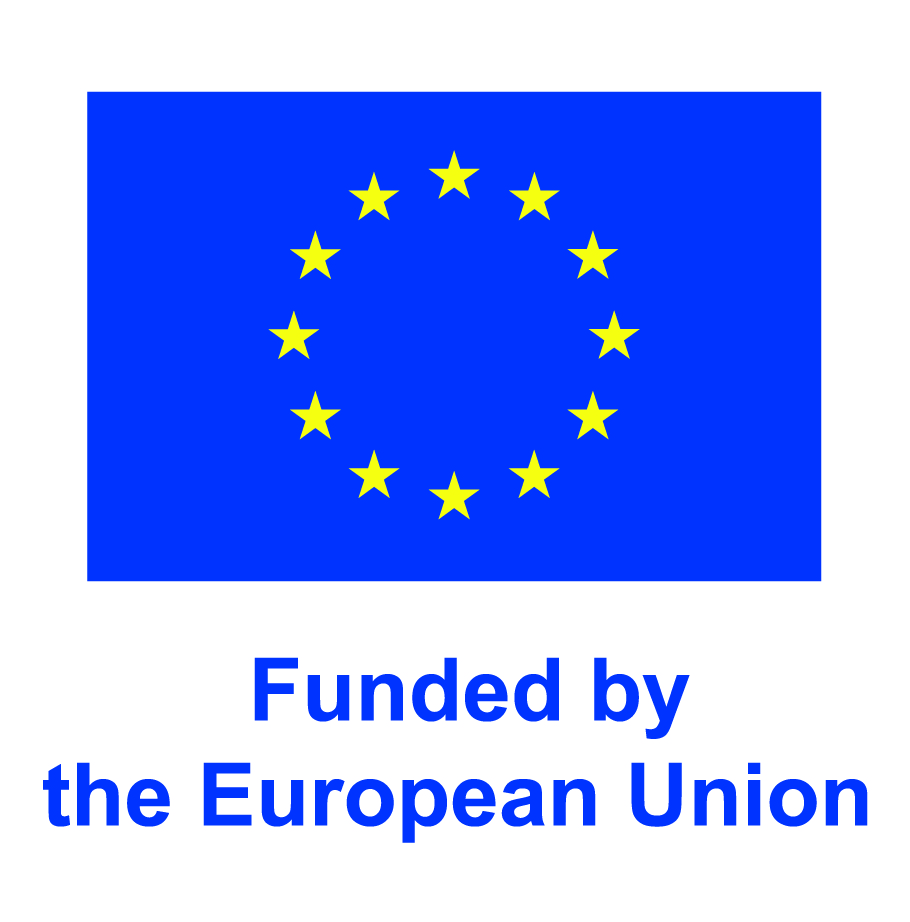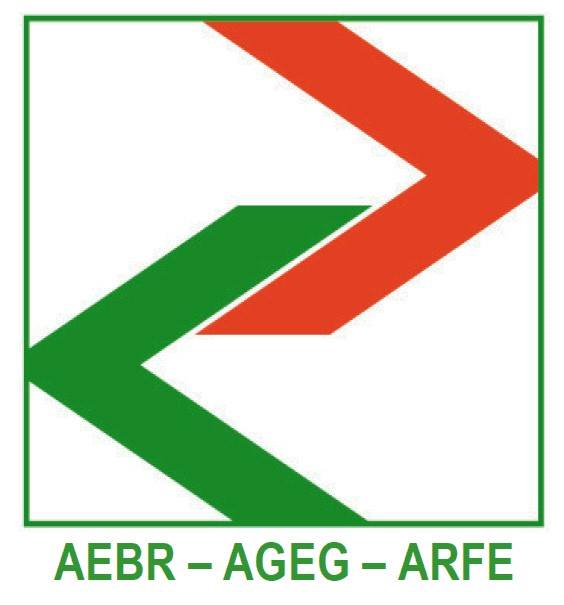My IVY experience for the Interreg VI Italia – Österreich project “Strategy HEurOpen” at GAL Open Leader
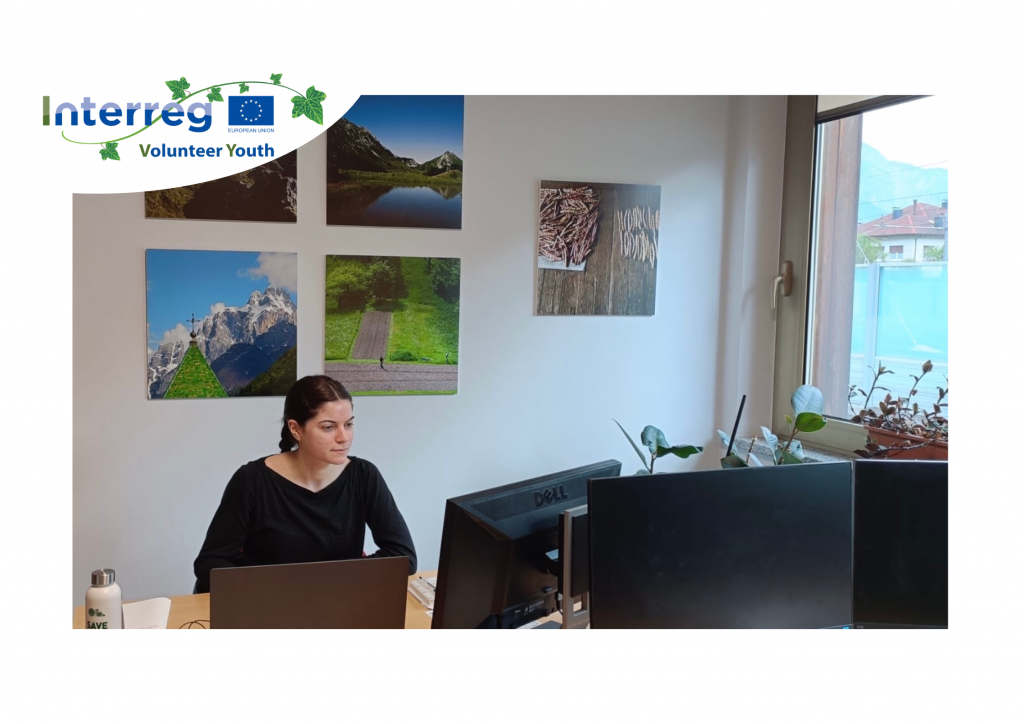
Hi everyone! My name is Lisa, I’m 23 and I’m an Interreg Project Partner for the cross-border “Strategy HEurOpen 2021-2027” since February 2024. This strategy has the aim to promote and sustain cross-border collaboration between the Italy-Austria border. It is developed between three partners: GAL Open Leader, GAL Euroleader, based in Italy, and LAG Region Hermagor based in Austria. The Gal Open Leader is my host organization, is located in Pontebba, a small town in Friuli Venezia Giulia. It is a local action group that works in three main areas: Val Canale, Canal del Ferro and Gemonese, involving 15 municipalities. HEurOpen is an integrated cross-border strategy under the EU’s CLLD (community led local development) approach for the Interreg VI Italy-Austria Program. It promotes local social, economic, cultural and environmental development, sustainable tourism and safety in non-urban areas. Its main goal is to build dynamic, resource-balanced communities that benefit from cross-border cooperation. In order to achieve the goal the strategy can fund: Small projects: their objectives are to stimulate broad participation, promoting the integration of the three border areas and also to make it easier for the local actors to start taking part in the cross border cooperation. The budget for the whole project is between 3.000 and 50.000 euros( 80% public contribution + 20% partners funds); Medium projects with the goal of building cross-border cooperation, promoting local development and cooperation between the three areas in order to address common obstacles. The budget for each project is between 50.001 and 200.000 euros ( 80% public contribution + 20% partners funds). My role is to help improve the communication so that the strategy HEurOpen can be better promoted and reach as many people as possible. I’m also creating a database of possible stakeholder in the HEurOpen area. Thanks to the promotional activities I’m learning a lot about communication strategies and tools, but most importantly I’m learning a lot about cross-border cooperation and Interreg. – Lisa, IVY Project Partner at the Local Action Group OPEN LEADER for the Interreg Italy-Austria Project “Strategy HEurOpen”. Discover more about the Interreg project HEurOpen Click Here Discover more about the host organization Click Here
Shaping sustainable urban tourism in Mediterranean cities: Being an IVY for the COOL NOONS project
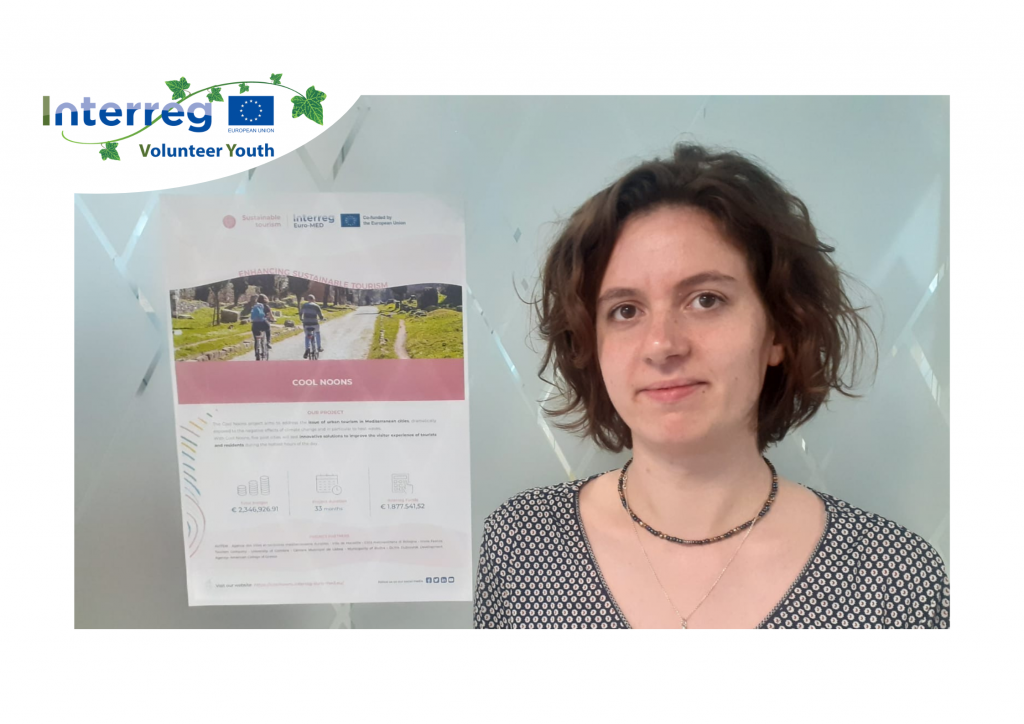
My name is Lisa Brenier and I am an IVY project partner for the COOL NOONs project at the Agency for Sustainable Mediterranean Cities and Territories (AViTeM) in Marseille, France. I recently graduated from the University of Freiburg and Sciences Po Aix with a double degree in political sciences, specializing in Euro-mediterranean cooperation. I was looking for an on field experience where I could use what I learned during the past few years. I was particularly interested in working on a project addressing climate change consequences in Mediterranean cities. What is COOL NOONS about? The goal of COOL NOONS is to promote climate change adaptation in urban settings while renewing the tourism offer in 5 pilot Mediterranean cities, during the hottest hours of the day : Lisbon (Portugal), Marseille (France), Imola (Italy), Dubrovnik (Croatia) and Budva (Montenegro). First, the pilot cities will develop some Cool Noons paths, mapping and connecting fresh spots and cool areas, including tourist attractions. The firsts paths will be tested on summer 2024. If you happen to visit one of the pilot cities, feel free to check those itineraries out and let us know what you think! Secondly, creative workshops involving citizens, tourists and local stakeholders will be organized to imagine and select some solutions to improve the quality of life and comfort of visitors. This could be greening the city, creating new shadow spaces, reinventing the use of some buildings, designing new indoors activities… Cool noon paths and some of the technical solutions will be implemented and tested during the summer 2025! Who is involved? The COOL NOONS project started in January 2024 and is funded by the Interreg Euro-Med program. This project is coordinated by the Agency of Mediterranean cities and territories (Avitem, France) and involves 8 other partners from 7 European countries: the Municipality of Lisbon, the Municipality of Marseille, the Metropolitan city of Bologna, the Imola Faenza Tourism Company, DURA (City Of Dubrovnik Development Agency), the Municipality of Budva, the University of Coimbra (Portugal) and the American College of Greece. As an IVY volunteering with AViTeM I support my colleagues in coordinating the activity of each partner – a little bit like an orchestra conductor. It is really fulfilling in the sense that I have an overview of the whole project and get to learn about a lot of different things (mapping tools and methodology, data collection, co-designing, communication etc.) Being posted in Marseille, one of the pilot cities, also allows me to see COOL NOONs being developed on the ground ! A project off to a great start From March 25th to 27th 2024, my colleague and I organized a workshop gathering all project partners gathered in Marseille to kick-off the collective work and to get trained on design thinking and collective intelligence. Through this training we acquired essential skills to coordinate and facilitate the co-designing workshops in their respective cities. It was a nice way to meet everyone working on this project in person! COOL NOONS was also under the spotlight during the kick-off of the Sustainable Tourism Community (Community4Tourism, C4T) in Rome on March 10th-11th 2024. The Community gathers all the thematic projects working on sustainable tourism funded by the Interreg Euro-Med program and aims to create synergies between them. We already saw promising connections with some “sister” projects! COOL NOONS was also presented on April 2024 at the public session of the other horizontal project related to sustainable tourism in Interreg Euro-Med: Dialog4Tourism(D4T). The COOL NOONS project partners during the meeting in Marseille Taking part in such events is a great opportunity to interact with the people and institutions shaping European action on the ground. Plus, it help to get in touch with common issues we have in our respective countries and address them in a transnational collaborative effort. As we presented COOL NOONS in Rome, the temperatures were reaching almost 30°C (in April), showcasing that the issues tackled by our project urgently need to be addressed beyond our five pilot cities. Don’t hesitate to follow the updates of the project on Instagram, Facebook, YouTube and its website. – Lisa, IVY Project Partner at AVITEM – Agency for Sustainable Mediterranean Cities and Territories for the Interreg Euro – Med project “COOL NOONS” Discover more about the COOL NOONS Interreg project Click Here Discover more about the host organization Click Here
Forest and Coastal Hiking Trails’ accessibility improvement for different social groups
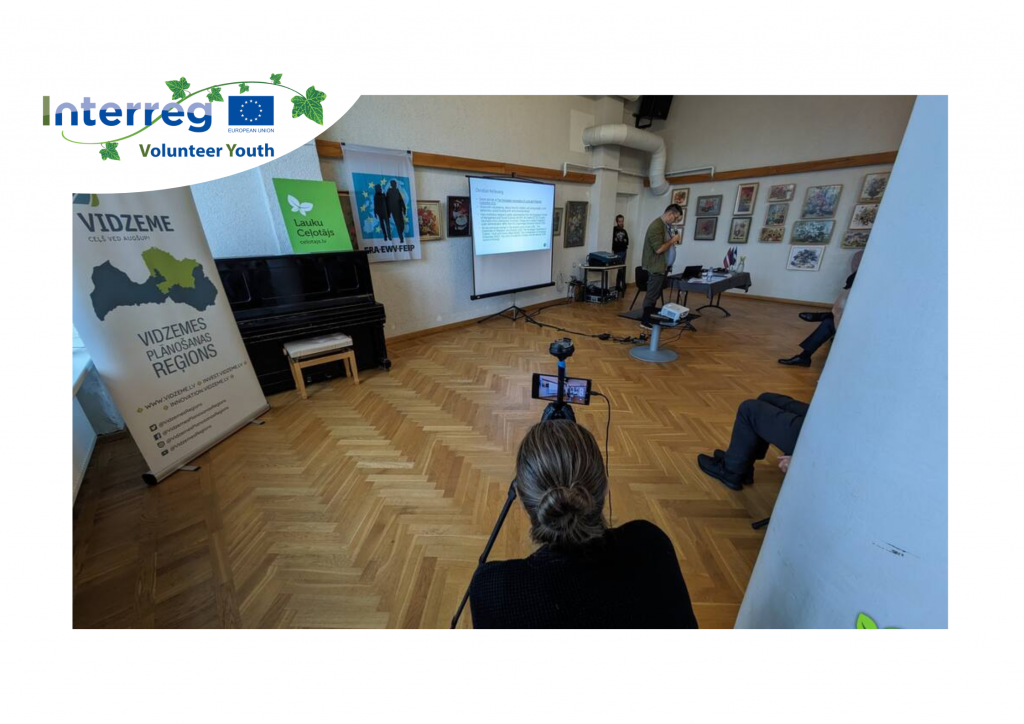
I am volunteer in the framework of the Interreg Project “EE-LV00013 – Forest and Coastal Hiking Trails’ accessibility improvement for different social groups. The main goal for this project is to improve the accessibility of tourism services in Estonia and in Latvia for individuals with disabilities, ensuring they can enjoy their travel experiences without barriers. In Latvia, a substantial number of individuals, nearly 127,000, live with invisible disabilities or functional impairments. Despite shared basic needs with other travelers, unique solutions are required to ensure their access to tourism services. Embracing universal design principles is key for service providers to reduce barriers in understanding, communication, and physical access. By prioritizing accessibility in accommodations and facilities, Latvia and Estonia can offer a more inclusive tourism experience for all travelers. Everyone benefits from promoting inclusive tourism in Latvia. Individuals with disabilities or functional impairments gain improved access to tourism services, allowing them to enjoy travel experiences like anyone else. In this collaborative effort to promote inclusive tourism in Latvia and Estonia, I played a vital role by designing and distributing questionnaires to gather information. – Elīza , IVY Reporter at the Latvian country tourism association Lauku Celotajs for the Interreg Estonia – Latvia project “EE-LV00013 – Accessible Hiking Trails” Discover more about the Interreg project “EE-LV00013 – Accessible Hiking Trails” Click Here Discover more about the Host Organization Click Here
Volunteering at the Regional Coordination Unit of Interreg Italy-Austria
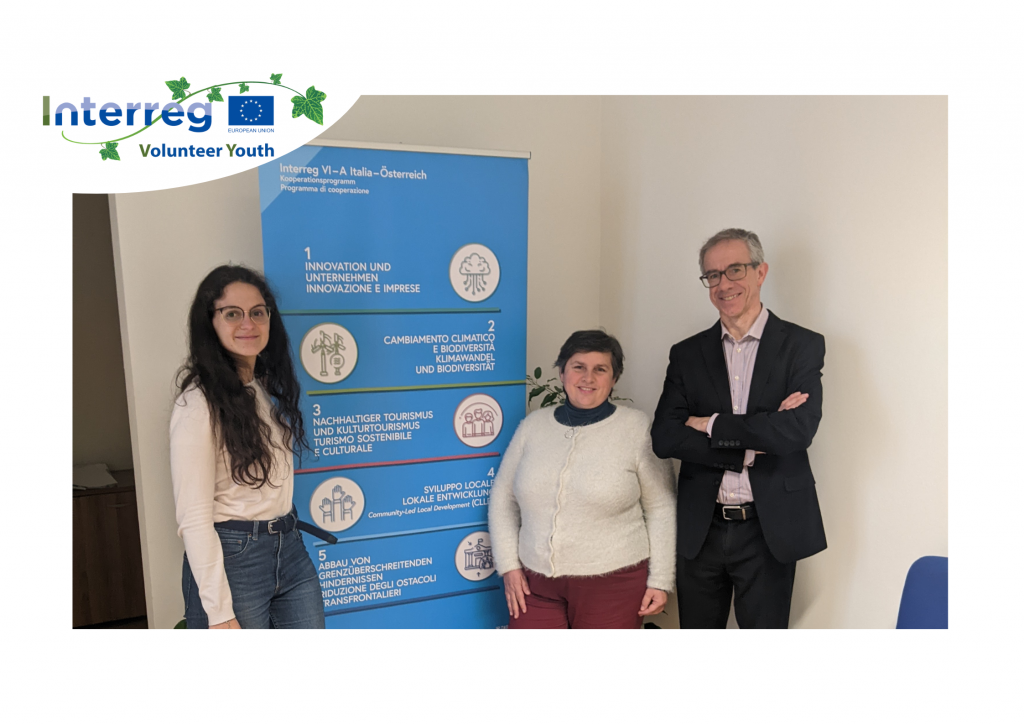
I am Syria Paoloni, an IVY volunteer in the Regional Coordination Unit of Interreg Italy-Austria in Trieste at the Autonomous Region Friuli Venezia Giulia. Additionally, I am pursuing a double master’s student of European Governance (University of Utrecht) and Politics and Public Administration (University of Konstanz). Friuli Venezia Giulia is a cross-border region located in north-eastern Italy bordering Slovenia and Austria. I always believed that cross-border cooperation can bring together different cultures, act as a door to other European macroregions, and most importantly, strengthen the European identity. I couldn’t miss this opportunity of experiencing cross-border cooperation between Italy and Austria! Interreg Italy-Austria covers six regions, three per country: Salzburg, Tyrol and Kärnten in Austria, and the Veneto Region, the Automous Region Friuli-Venezia Giulia and the Autonomous Province of Bolzano in Italy. Interreg Italy-Austria has its Managing Authority located in Bolzano, in South Tyrol, Italy. Its structure comprehends the joint secretariat located in Bolzano and the Regional Coordination Units located in each region of the program. In particular, the Regional Coordination Unit like the one where I am volunteering, acts as an interface between the programme bodies and beneficiaries, acting as the primary point of contact for potential beneficiaries. The offices in Trieste and Udine of the Regional Coordination Unit where I am volunteering provide constant assistance to the beneficiaries. They organize InfoDays and private meetings to ensure correct application processes, assist with partner searches, and evaluate projects. Moreover, the office verifies the project synergies with national and regional strategies and policies, to answer common questions, discuss procedures, or solve common problems with the other Regional Coordination Units. For the period 2021-2027 there are 5 priorities: innovation and entrepreneurship (1), climate change and biodiversity (2), sustainable tourism and culture (3), Community led-local development (CLLD) (4) and reducing cross-border obstacles (5). CLLD is a peculiarity of the program: it finances the implementation of four cross-border local development strategies through Community-Led Local Development. The strategies intervene with a ‘bottom-up’ approach, involving Local Action Groups, which are entities created within the framework of the EU ‘Leader’ approach for the implementation local development strategies. In our region LAG Region Hermagor, LAG Open Leader and LAG Euroleader cooperate in the HEurOpen strategy. Coming to my activities, I arrived in February and so far I am really enjoying my experience. My colleagues are very opened to listen to my proposals and opinions about the office activities. I mainly take care of communication, promotion and organization activities. First of all, I helped with the communication with the beneficiaries concerning the InfoDay about the program second call focused mainly on the second priority, namely climate change and biodiversity. During the InfoDay, which was held online, I also had the opportunity to present the IVY initiative to the beneficiares. Secondly, I offer assistance regarding the German language in the e-mails or meetings with the Austrian units. Thirdly, I regularly update the website with program-related news on the website Europa FVG such as the call openings, InfoDays, and opportunities for the beneficiares and citizens such as RegioStars 24, Interreg Volunteer Youth, and the Youth Council of the macrostrategy EUSALP. Additionally, I am currently helping with the gadget plan for the period 2021-2027 to promote the program. What I enjoy the most is to attend the Interreg Italy-Austria events because I can truly enjoy cross-border cooperation. For example, I had the opportunity to join a “Meet&Match” event in Mestre, Veneto, where partners from all the six regions of the program were invited to meet and match in order to find the right partnership for their projects proposal. There I met Managing Authority representatives and made use of my German skills to help the beneficiaries when needed! Another interesting opportunity was a kick-off event in Trieste where the beneficiaries presented a project funded by Interreg Italy-Austria. I was very happy to present the IVY initiative. Finally, in May I will attend the Monitoring Committee of the Program in Lienz, Austria! Last, but not least, analyzing synergies with other Interreg programs is fascinating. My colleagues also work with macrostrategies and other programs, providing me with valuable insights into the Interreg world. – Syria, IVY Reporter at the Regional Coordination Unit FVG – Interreg Italy-Austria Discover more about the programme Interreg Italy-Austria Click Here
Being an IVY Volunteer for the Interreg Euro-MED programme
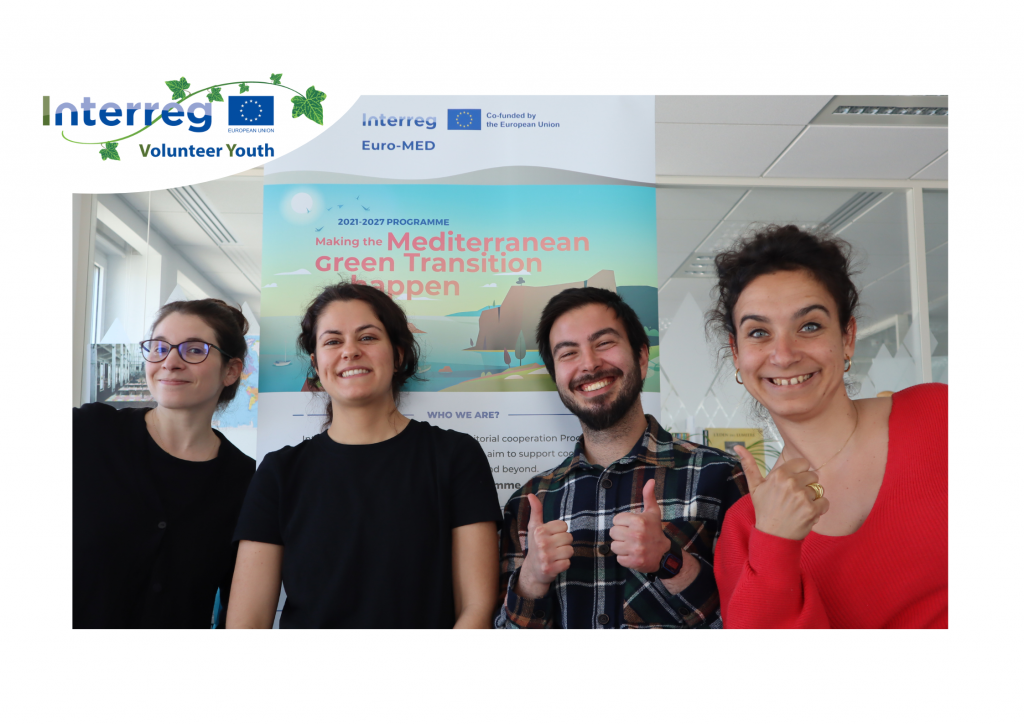
Hello everyone! My name is Solène Sanchez, and as part of the IVY Initiative, I am currently volunteering for the Joint Secretariat of the Interreg Euro-MED programme. This is a transnational territorial cooperation programme that aims to make the green transition happen in the Mediterranean by financing impactful projects in the area! Olga (IVY mentor) – Me – Fahrettin (IVY Volunteer) – Céline (IVY mentor) Interreg Euro-MED programme During my first weeks at the JS, I had to understand what the programme was about. The cooperation area includes 69 regions from 14 countries, all located in the northern shore of the Mediterranean Sea: 10 of them are EU countries and 4 are IPA countries (Republic of North Macedonia, Montenegro, Bosnia-Herzegovina, Albania). Organisations coming from these 14 countries can be part of a Euro-MED project, or even be the lead partner! The entire programme, down to the smallest detail, is built to create a lasting change in the region. To do so, four missions have been identified: Strengthening an Innovative Sustainable Economy Protecting, Restoring and Valorising the Natural Environment and Heritage Promoting Green Living Areas Enhancing Sustainable Tourism All the financed projects are part of one of these missions. In addition, there are several types of projects. Thematic projects directly contribute to the programme aim, looking for solutions for a greener and smarter Mediterranean. Then, there are Governance projects, 2 per each mission: Community projects, which focus on transferring and exchanging the results obtained by the thematic projects; and Dialogue projects, which work to improve the governance at the Mediterranean level. I discovered the programme structure, and even if it is pretty complex, I find it relevant because a project does not stand alone: they are all linked to their mission, to other projects part of the same mission and to governance projects. Moreover, the programme is in contact with Mediterranean organisations such as PRIMA or the Ufm. All these connections and links are conceived to create a real change in the region. The Team in Marseille! The Joint Secretariat is one of the programme bodies, but it’s a central one! The JS is in charge of the day-to-day operational administration and is hosted by the French region Provence Alpes Cote d’Azur in Marseille. 24 people work in the JS plus an IT intern, and we are 2 IVYs. The JS is divided into several units: the Communication unit that makes information available, the financial unit that manages money, the resource unit in charge of the relation with the region, the project unit that works with the partners and their project. My volunteering experience so far… As an IVY volunteer, I joined the JS to help with the Post 2027 consultation. The European Commission asked Interreg programmes to conduct a consultation among their stakeholders and citizens to gather feedback for the future of Interreg. Regarding the stakeholder consultation, the MED programme joined forces with five other programmes to have a common survey. Therefore, I attended the different transnational meetings and prepared the input from our part. It’s an ongoing exercise and it’s interesting to see how programmes can work together. The citizen consultation is rather different because we had to work on the target differently. However, I’m happy to be involved in both consultations. On the other hand, I also support the communication unit in their daily work. I made the information available to stakeholders regarding the calls, European news and upcoming events. I wrote several articles and learnt the communication rules of the programmes and for the project. I also attend several meetings organised by the JS for the partners and Monitoring Committees with national authorities. Thanks to the IVY initiative, I have the opportunity to deepen my knowledge on territorial cooperation and to understand how a Joint Secretariat works. It also gives me insights about what I would like to do after this experience. – Solène, IVY Reporter at the Joint Secretariat Interreg Euro – Med Discover more about Interreg Euro-MED Click Here
Volunteering Down to Earth for IVY
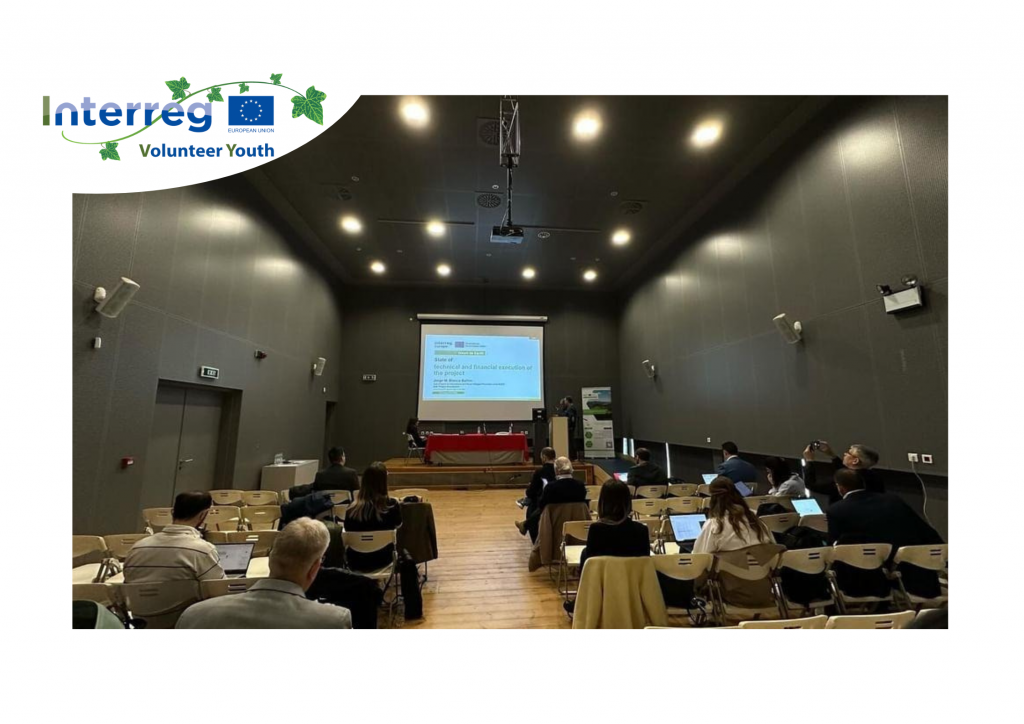
The Interreg project Down to Earth, under the Interreg Europe programme, aims to address one of the most critical issues of our time: climate change and its impact on rural communities. The primary goal is to enhance the resilience of rural areas across Europe in the face of climate-related disasters. Climate change affects everyone, but it hits rural regions particularly hard. For example, recent floods in Thessaly, Greece, from increased extreme weather events including heavy rainfall resulted in severe damage to infrastructure, hundreds of homes, and agricultural land and the displacement of residents for an unknown amount of time. The area will take years to recover. Such floods or disasters in general, are expected to intensify and become more frequent due to climate change. Adding to this reality, the depopulation of rural areas may lead to further deterioration of the situation, since the limited human force may lead to inadequate maintenance of key strategic systems like drainage systems etc, and the reduction of the overall resilience to natural disasters. Therefore, I am happy to volunteer in the Down-to Earth project that takes immediate action and addresses the climate crisis. Our project has been actively involved in both research and policy development. Over the past few months, we have collaborated with researchers, experts, and stakeholders to find innovative solutions to the challenges facing rural communities acknowledging that any solution to climate change should be more of a hybrid strategy, that involves both government and their administrative agencies as well as the rural population and communities, rather than a top down system that is broadly applied. Recently, our team organised community outreach events in the affected rural areas of Kalavryta, Thermo and Xiromeno in Western Greece. The events facilitated constructive dialogue among stakeholders and the rural communities’ representatives. In a broader plan, over the next four years, the programs agenda focuses on three key themes: addressing environmental risks linked to depopulation, overcoming access barriers for young farmers in depopulated areas, and developing policies to empower farmers and land managers in the fight against climate change. Each year, the program aims to compile regional and thematic reports to share insights, fostering mutual learning and collaboration to create a bidirectional communication channel between agencies and rural communities. Rural communities are the primary beneficiaries. By strengthening their resilience to environmental disasters, we not only protect livelihoods but also create economic and social opportunities that can revitalize rural areas. Moreover, a decentralized strategies empower local communities to take ownership of their resilience-building efforts while simultaneously allowing for the customized and adaptive strategies to address specific local needs, such as strengthening infrastructure against specific types of climate-related disasters or implementing sustainable agricultural practices suited to the local ecosystem. Teamwork is of essence and a shared vision is necessary among project partners. Each partner coming from a different background brings insights—whether in research, policymaking, or community engagement. Teams consisting of members from diverse backgrounds, researchers, and volunteers, such as climate science, engineering, social sciences, economics, policy, and humanities, can offer a wide range of perspectives and expertise. This diversity allows for a more comprehensive understanding of the complex issues surrounding climate change, local policies, legislation etc. and enables the development of holistic solutions that address various aspects of the problem. By incorporating multiple perspectives and methodologies, teams can conduct more robust analyses and mitigate potential biases, leading to, more reliable and credible research outcomes and eventually more successful policies and strategies. In this diverse scenery it is important to create clear channels of communication, that are essential for effective cooperation among teams. Regular meetings physical or online, email updates, phone calls, and collaboration platforms carry the exchange of information, updates on project progress, and coordination of activities. Organizing open events in local communities has proven to be a successful practice. Locals feel more comfortable sharing their problems and their ideas in a less formal yet familiar environment. Also, such events strengthen the relationships between researchers and locals by mutual respect, trust and building positive relationships though interpersonal exchange of ideas and feedback. In conclusion, by fostering collaboration among diverse stakeholders and implementing hybrid strategies that combine top-down policies with grassroots initiatives, the project aims to enhance resilience and empower local communities. Through research, policy development, community outreach, and ongoing communication, the project strives to address the multifaceted impacts of climate change on rural areas. By prioritising the needs and perspectives of rural residents, the project not only mitigates environmental risks but also fosters economic and social opportunities for revitalisation. The programs’ structure and extroversion create a great environment for volunteer work and provide a well-rounded understanding of climate change issues. – Stavroula , IVY Project Partner at the University of Patras, for the Interreg EUROPE project Down to earth Discover more about the Interreg Europe project Down to Earth Click Here Discover more about the Host Organization University of Patras Click Here

